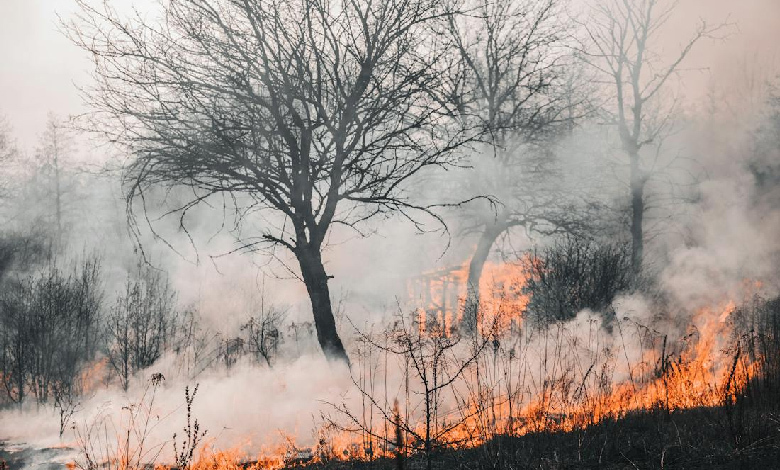Understanding the far-reaching impacts of air pollution – and places to find the cleanest air

The air we breathe in every day has profound effects on our physical and mental health. All but 1% of the global population is exposed to air that exceeds limits for pollutants determined by health agencies. But air quality has also improved in certain parts through policies.
Smoke from wildfires is one of the major factors behind the concerning situation. One study of PM2.5 from wildfire smoke found that levels had increased by up to 5 micrograms per cubic metre in the western US in the past decade – enough to reverse decades of improvements.
Remember, wildfire smoke isn’t just a local problem
In 2023, large portions of the country reported significant reductions in air quality and visibility as smoke from wildfires in Canada billowed across the border. Since climate change is expected to increase the risk of wildfires globally, it is likely that air quality will also dip.
People suffering from respiratory conditions and newborns with developing lungs are the most affected in such crises. Read on for some of the profound and unexpected ways air pollution can affect our bodies – and find places on Earth with the cleanest air.
Wildfires are not just a local problem to people living near forests, grasslands and peatlands. 5 Fires can easily send plumes of smoke up to 23 km into the stratosphere, eventually letting the tiny pollutants to spread all over the globe and trigger deadly ailments.
The health risks that accompany wildfire air pollution depend in part on what’s on fire. One of the typical pollutants released in wildfires is PM2.5, or particulate matter that measures 2.5 micrometers across or less, and is linked to respiratory conditions.
Far-reaching impacts of air pollution
Disturbed mental health
In terms of mental health, air pollution is linked to poorer performance in schools, impaired judgement and higher levels of crime. But the picture is not simple as exposure to air pollution is not the same for everyone. The situation is often worse in the poorest neighbourhoods.
Rising cases of obesity
Research has linked airborne pollution such as PM2.5 to obesity. Children living in the most polluted areas on the planet, for instance, are more than twice as likely to be considered obese, the BBC noted in a recent report.
Type 2 diabetes and loss of smell
There is also growing evidence at air pollution may also play a significant role in the development of related conditions such as type 2 diabetes. In addition, exposure to toxic air is also potentially affecting our sense of smell, as per scientific research.
Finding the cleanest air on Earth
To map the long journeys that air pollution takes in atmospheric currents, scientists depend on monitoring stations that take near constant samples of air quality. One of those is the Zeppelin Observatory above a tiny town in Svalbard, Norway.
This settlement boasts a population of just 45 individuals in winter and is located approximately 1,230 km from the North Pole. It grew up around the coal-mining industry in the first half of the 20th century. But today, the place has some of the cleanest air on earth.
Other such places on the planet with the most pristine air include the north-western tip of Tasmania in Australia, Mauna Loa station in Hawaii, Macquarie Island and Casey Station in Antarctica. But things could change at an unprecedented pace if proper action is not taken.
For those 99% of us living far from the cleanest air, some of the most impactful changes to bring down levels of air pollution include lowering emissions from road transport, adopting cleaner ways of cooking, rapidly reducing use of fossil fuels and prevent wildfires.



